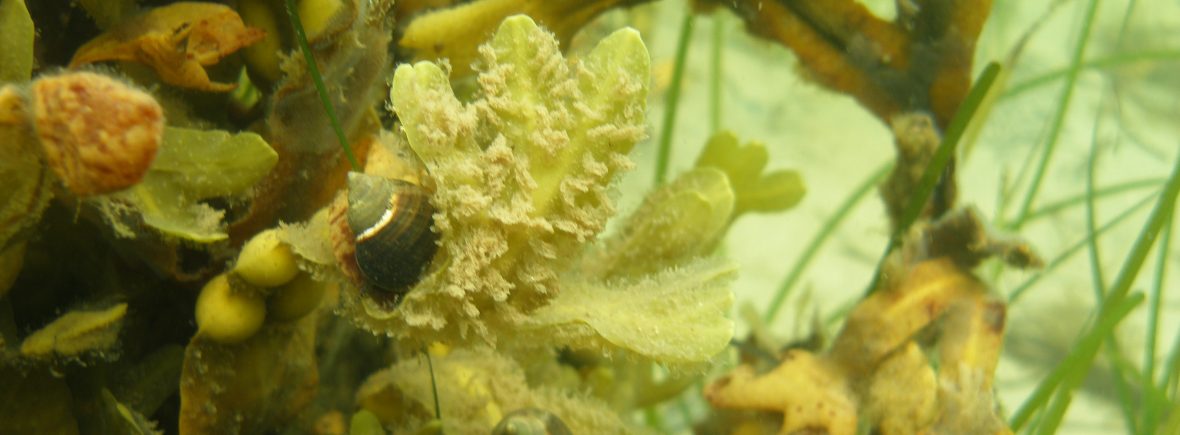The central defined assessment feature of the Marine Strategy Framework Directve (MSFD) is the “Good Environmental Status” (GES). Compared to the Water Framework Direktive (WFD) an evaluation of five different classes for the GES is not required, however verbal-descriptive subdivisions are available.
The assessment itself is based on an ecosystem approach, integrating specific species as well as different habitats, not just assessing separately, specific quality elements of ecosystems like for the WFD. The directive lists eleven descriptors for the assessment of GES, which include descriptors for pressures as well as biological descriptors:
- D1 – Biological diversity – is to be maintained. The quality and occurrence of habitats and the distribution and abundance of species are in line with prevailing physiographic, geographic and climatic conditions.
- D2 – Non-indigenous species – introduced by human activities are at levels that do not adversely alter the ecosystems.
- D3 – Commercial fish and shellfish – are within safe biological limits, exhibiting a population age and size distribution that is indicative of a healthy stock.
- D4 – Food webs – all elements, to the extent that they are known, occur at normal abundance and diversity and levels capable of ensuring the long-term abundance of the species and the retention of their full reproductive capacity.
- D5 – Eutrophication – is minimised, especially adverse effects thereof, such as losses in biodiversity, ecosystem degradation, harmful algae blooms and oxygen deficiency in bottom waters.
- D6 – Seafloor integrity – is at a level that ensures that the structure and functions of the ecosystems are safeguarded and benthic ecosystems, in particular, are not adversely affected.
- D7 – Hydrographical conditions – permanent alteration of hydrographical conditions does not adversely affect marine ecosystems.
- D8 – Contaminants – are at levels not giving rise to pollution effects.
- D9 – Contaminants in seafood – for human consumption do not exceed levels established by Community legislation or other relevant standards.
- D10 – Litter – properties and quantities do not cause harm to the coastal and marine environment.
- D11 – Energy – introduction of energy, including underwater noise, is at levels that do not adversely affect the marine environment.
Especially for the biological descriptors D1 biological diversity and D4 food webs extremely complex processes and links between different levels of the ecosystem have to be considered to cover the integrative ecosystem approach. Thus several expert groups have defined several criteria describing the nature of the descriptor and its relevance for the ecosystem. For each of those criteria indicators need to be developed and integrated making an assessment of single descriptors and the GES possible.
Member states should have carried out an initial assessment on basis of available data, provided a description of the „Good Environmental Status“ (GES), defined environmental targets and assessment indicators and documented existing gaps in data and monitoring until 15th July 2012. A monitoring scheme should be established and implemented until 2014 and national measures for the environmental target setting defined by 2015.
In parallel to national efforts on initial assessment, indicator definition and gap analysis, the EU funds international projects dealing with the integrating ecosystem approach. The MariLim GmbH is involved in MSFD implementation projects at both national and international level. MariLim contributes to the preparation of the national MSFD status reports (in German; Cluster 2: Implementation of the MSFD in the framework of EEZ research of the Federal Agency for Nature Conservation, BfN for short), develops an indicator for HELCOM (CumI) and Germany for the assessment of cumulative physical disturbances and conducts research on the MSFD and the possibilities of ecosystem-based assessments in the framework of the EU projects DEVOTES (NEAT software) and GES4SEAS.


